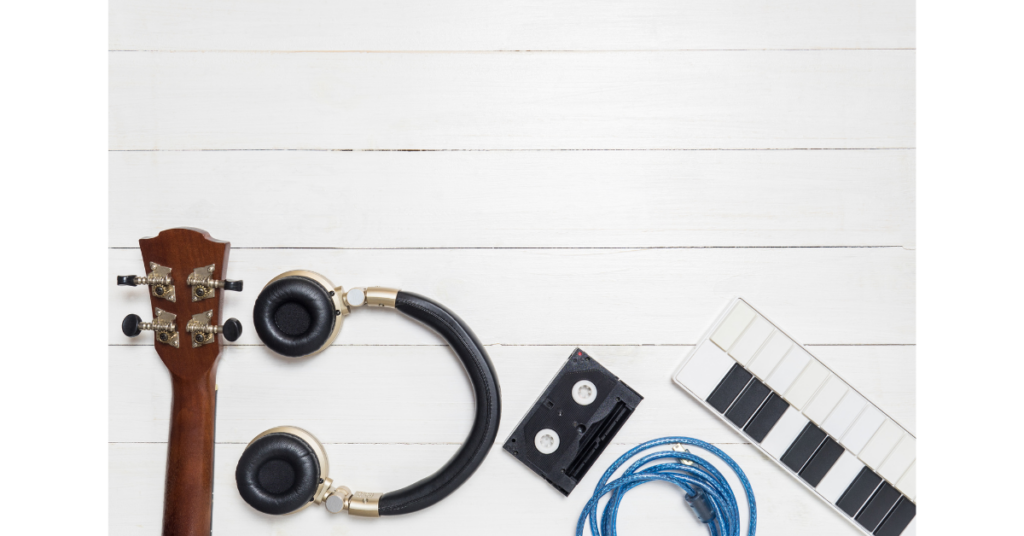The Extraordinary Power of Music as a Therapeutic Intervention
As complementary medical professionals, we already know that music therapy is more than just background noise, and that it can offer significant benefits for our patients in a variety of settings.
A wealth of research has proven that music therapy can improve medical outcomes and quality of life in many ways. Here is a compilation of some of the most compelling research in the field to whet your appetite to find ways of integrating the healing power of music into your practice. Of course, we also have several outstanding sound and music therapy training courses listed on The CMA site if you want to take your studies further.
The Studies
For instance, controlled clinical trials have demonstrated that listening to music before invasive procedures, such as colonoscopies, cardiac angiography, and knee surgery, can reduce anxiety levels and the need for sedatives.
Anxiety reduced in invasive procedures
Patients who listened to music while undergoing a procedure reported less discomfort, and those who heard music in the recovery room required fewer opioid painkillers (1).
In addition, music therapy can restore speech in patients recovering from a stroke or traumatic brain injury that has damaged the left-brain region responsible for speech. By singing their thoughts and gradually dropping the melody, patients can work around the injury to the left side of their brain, which controls speech (2).
This technique helped former US Representative Gabby Giffords testify before a Congressional committee two years after a gunshot wound to her brain destroyed her ability to speak.
Music therapy also reduces the side effects of cancer therapy. In patients receiving chemotherapy or radiotherapy, listening to music can help reduce anxiety, quell nausea and vomiting, and promote relaxation (3).
Moreover, music therapy has proven effective in reducing pain perception and lessening the amount of pain medication needed in patients with acute pain, as well as those with chronic pain from arthritis. It can also relieve depression and give patients a greater sense of control over their pain (4,5,6).
Finally, music therapy has been shown to improve the quality of life for dementia patients. Because the ability to engage with music remains intact late into the disease process, music therapy can help recall memories, reduce agitation, assist communication, and improve physical coordination (7,8,9).
The evidence for music therapy continues to grow, and it is a complementary therapy that is becoming more commonly recommended by healthcare professionals. You can find full references below to the original research – and further links to the very latest studies in this extraordinary field in order to take a deeper dive into this compelling topic.
Why not get involved
We hope that you find that examining the ever-growing evidence-base for complementary medical therapies fascinating. Our field is often accused by uneducated sceptics of being ‘woo-woo’ at worst, or ‘lacking in research’ at best. However, nothing could be further from the truth. If you are intrigued by research in the complementary / integrative medical field you can take a look at some of our excellent videos featuring The CMA’s Science and Research Director, Dr Frank Sabatino, in which he discusses how to get started in research and some of the best methodologies for examining holistic models of health interventions. You might also want to take a look at “Complementary and Alternative Medicine – What Really Works”, edited by CMA President, Jayney Goddard, and published by Harper Collins.
References
1. Garza-Villarreal EA, Wilson AD, Vase L, Brattico E, Barrios FA, & Jensen TS (2017). Music reduces pain and increases resting state fMRI BOLD signal amplitude in the left angular gyrus in fibromyalgia patients. Frontiers in psychology, 8, 1059.
2. Schlaug G, Norton A, Marchina S, Zipse L, Wan CY. From singing to speaking: Facilitating recovery from nonfluent aphasia. Future Neurol. 2010;5(5): 657-65. doi:10.2217/fnl.10.47.
3. Choi YH, Lee JH & Kang OK (2016). The effect of music therapy on anxiety and depression in patients undergoing chemotherapy. Journal of pediatric hematology / oncology, 38(3), 163-69.
4. Li X, Zhou KN, Yan HJ, Wang D, Zhang YP & Zhang P (2020). Music interventions for psychological and physical outcomes in people with chronic pain: A systematic review and meta-analysis. Journal of advanced nursing, 76(7), 1486-98.
5. Kemper KJ & Danhauer SC (2005). Music as therapy. Southern Medical Journal, 98(3), 282-88.
6. Bradt J, Dileo C, Grocke D & Magill L (2011). Music interventions for improving psychological and physical outcomes in cancer patients. Cochrane Database of Systematic Reviews (8).
7. Raglio A, Filippi S, Bellandi D, Stramba-Badiale M & Ubezio MC (2010). Effectiveness of music therapy for anxiety reduction in women with breast cancer in chemotherapy treatment. Holistic nursing practice, 24(5), 238-42.
8. van der Steen JT, Smaling HJA, van der Wouden JC, Bruinsma MS, Scholten RJPM & Vink AC (2018). Music-based therapeutic interventions for people with dementia. Cochrane Database of Systematic Reviews (7).
9. Zhang Y, Cai J, An L, Hui F, Ren T, Ma H & Zhao Q. Does music therapy enhance behavioral and cognitive function in elderly dementia patients? A systematic review and meta-analysis. Ageing Res Rev. 2017 May;35:1-11. doi: 10.1016/j.arr.2016.12.003. Epub 2016 Dec 23. PMID: 28025173.
Further reading on Music Therapy
The following studies provide a mere snapshot of the very latest work in the music therapy field, illustrating how powerfully therapeutic it can be in clinical settings and further afield:
Zhang H, Yin L, Peng Y, Zhang G, Chen Q, Liang J, Tian S, Tong T, Liu R, Lv C, Zhao L, Liang T, Wang J & Fan L (2023). Effect of five-elements music therapy combined with Baduanjin qigong on patients with mild COVID-19. Hong Kong journal of occupational therapy: HKJOT, 36(1), 31-38. https://doi.org/10.1177/15691861231167536
Gunjiganvi M, Rai S, Awale R, Mishra P, Gupta D & Gurjar M (2023). Efficacy of Yoga Nidra on Depression, Anxiety, and Insomnia in Frontline COVID-19 Healthcare Workers: A Pilot Randomized Controlled Trial. International journal of yoga therapy, 33(2023), Article 3. https://doi.org/10.17761/2023-D-22-00011
Zhou C, Ma H, Qi X, Xu C & Liang Z (2023). The effect of music therapy on delirium in patients receiving mechanical ventilatory support in the Intensive Care Unit: A protocol for systematic review and meta-analysis. Medicine, 102(24), e33956. https://doi.org/10.1097/MD.0000000000033956
Pennington E, Springer C, Albright J & Castel A (2023). Evaluation of different methods of environmental enrichment to control anxiety in dogs undergoing hemilaminectomy after acute intervertebral disc extrusion: A randomized double-blinded study. Frontiers in veterinary science, 10,1124982. https://doi.org/10.3389/fvets.2023.1124982
Padillah R, Setyosari P, Hambali IM & Indreswari H (2023). Combining music and film as therapy: How to reduce adolescent anxiety symptoms in digital era. Journal of public health (Oxford, England), fdad072. Advance online publication. https://doi.org/10.1093/pubmed/fdad072
Donghia R, Convertino S, Grasso M, Manghisi A, Di Masi M & Liso M (2023). Effect of music therapy in patients undergoing endoscopy: Pilot study of anxiety, pain, and cardiopulmonary parameters. The British journal of surgery, znad176. Advance online publication. https://doi.org/10.1093/bjs/znad176


